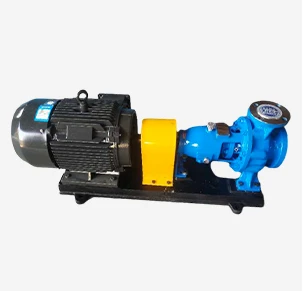Albanian
- Afrikaans
- Albanian
- Amharic
- Arabic
- Armenian
- Azerbaijani
- Basque
- Belarusian
- Bengali
- Bosnian
- Bulgarian
- Catalan
- Cebuano
- Corsican
- Croatian
- Czech
- Danish
- Dutch
- English
- Esperanto
- Estonian
- Finnish
- French
- Frisian
- Galician
- Georgian
- German
- Greek
- Gujarati
- Haitian Creole
- hausa
- hawaiian
- Hebrew
- Hindi
- Miao
- Hungarian
- Icelandic
- igbo
- Indonesian
- irish
- Italian
- Japanese
- Javanese
- Kannada
- kazakh
- Khmer
- Rwandese
- Korean
- Kurdish
- Kyrgyz
- Lao
- Latin
- Latvian
- Lithuanian
- Luxembourgish
- Macedonian
- Malgashi
- Malay
- Malayalam
- Maltese
- Maori
- Marathi
- Mongolian
- Myanmar
- Nepali
- Norwegian
- Norwegian
- Occitan
- Pashto
- Persian
- Polish
- Portuguese
- Punjabi
- Romanian
- Russian
- Samoan
- Scottish Gaelic
- Serbian
- Sesotho
- Shona
- Sindhi
- Sinhala
- Slovak
- Slovenian
- Somali
- Spanish
- Sundanese
- Swahili
- Swedish
- Tagalog
- Tajik
- Tamil
- Tatar
- Telugu
- Thai
- Turkish
- Turkmen
- Ukrainian
- Urdu
- Uighur
- Uzbek
- Vietnamese
- Welsh
- Bantu
- Yiddish
- Yoruba
- Zulu
Telephone: +86 13120555503
Email: frank@cypump.com
Dhj . 25, 2024 09:44 Back to list
Effective Solutions for Wastewater Pumping and Sewage Treatment Systems
The Importance of Sewage Treatment Pumps in Modern Wastewater Management
Sewage treatment pumps play a critical role in ensuring effective wastewater management, a vital component of sustaining urban life and protecting environmental health. As urban populations expand, the volume of sewage generated increases correspondingly, necessitating reliable systems for transporting and treating wastewater. These pumps are essential in moving sewage from homes and businesses to treatment facilities, where it can undergo purification processes before being returned to the environment.
Types of Sewage Treatment Pumps
Sewage treatment pumps can be categorized into several types, each designed for specific applications. The most common types include submersible pumps, centrifugal pumps, and diaphragm pumps. Submersible pumps are designed to operate underwater, making them ideal for use in sewage collection tanks. They efficiently lift wastewater to the surface, where it can be further directed into treatment plants. These pumps are often favored for their reliability and ability to handle solid materials, such as hair and food waste, that can be present in sewage.
Centrifugal pumps, on the other hand, work by converting rotational kinetic energy into the hydrodynamic energy of the fluid. This type of pump is effective for transporting wastewater over long distances or at high flow rates. It is often employed in larger wastewater treatment facilities where significant volumes of sewage need to be managed.
Diaphragm pumps, known for their reliability in handling sludges and viscous fluids, are used in situations where sewage treatment plants require precise control over the flow rate. These pumps minimize the risk of clogging and are thus invaluable in maintaining system efficiency.
Operational Efficiency and Maintenance
sewage treatment pump

The operational efficiency of sewage treatment pumps is paramount to the overall effectiveness of wastewater management systems. Regular maintenance is essential to ensure these pumps function at peak performance. Maintenance involves routine inspections to check for wear and tear, cleaning to prevent blockages, and replacing parts as necessary.
Investing in modern, high-efficiency pumps can significantly reduce energy consumption and operating costs. Energy-efficient sewage treatment pumps are designed to deliver optimal performance while consuming less power. This not only helps in reducing the carbon footprint associated with wastewater treatment but also alleviates financial burdens on municipal budgets.
Environmental Impact
The environmental impact of sewage treatment pumps cannot be understated. Properly functioning pumps facilitate the effective treatment of wastewater, which, if mishandled, could lead to pollution of water bodies and disastrous effects on aquatic ecosystems. Untreated sewage can introduce pathogens and harmful chemicals into the environment, posing risks to both human health and wildlife. Therefore, efficient sewage treatment pumps are essential to safeguarding waterways and promoting public health.
Innovations in Pump Technology
Advancements in pump technology have led to the development of smarter, more efficient sewage treatment pumps. The integration of sensors and IoT (Internet of Things) technology allows for real-time monitoring of pump performance, enabling operators to address issues before they lead to pump failure. Predictive maintenance, supported by data analytics, can also reduce downtime and enhance system reliability.
In conclusion, sewage treatment pumps are indispensable in modern wastewater management systems. They facilitate the safe transportation and treatment of sewage, protecting the environment and public health. As urban populations continue to increase, the importance of innovative and efficient pump technologies will only grow, ensuring we manage our water resources responsibly for future generations.
-
Reliable Non-Clog Sewage Pumps with GPT-4-Turbo Tech
NewsAug.04,2025
-
High-Performance Air Pumps for Sand & Gravel | Efficient Transport
NewsAug.03,2025
-
ISG Series Vertical Pipeline Pump - Chi Yuan Pumps Co., LTD.|Energy Efficiency, Corrosion Resistance
NewsAug.03,2025
-
ISG Series Pipeline Pump - Chi Yuan Pumps | Energy Efficiency&Compact Design
NewsAug.03,2025
-
ISG Series Vertical Pipeline Pump - Chi Yuan Pumps Co., LTD.|High Efficiency, Low Noise, Durable
NewsAug.02,2025
-
ISG Series Vertical Pipeline Pump - Chi Yuan Pumps | High Efficiency, Low Noise
NewsAug.02,2025










